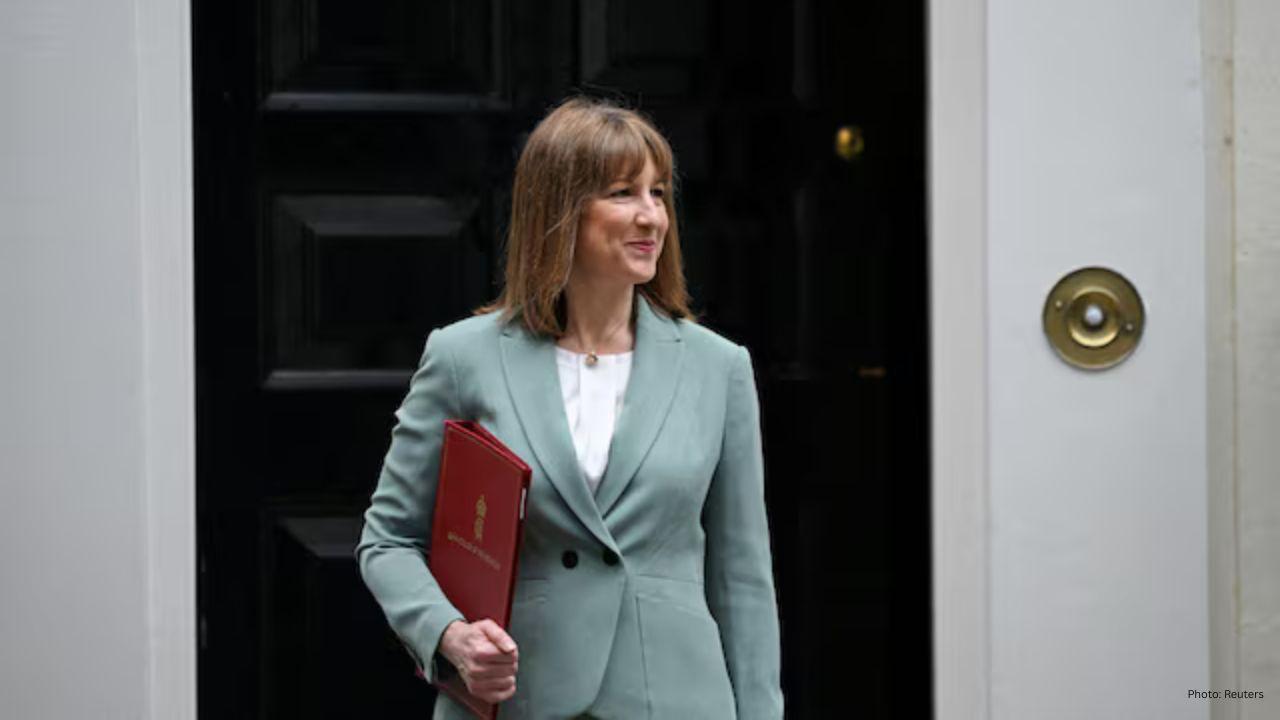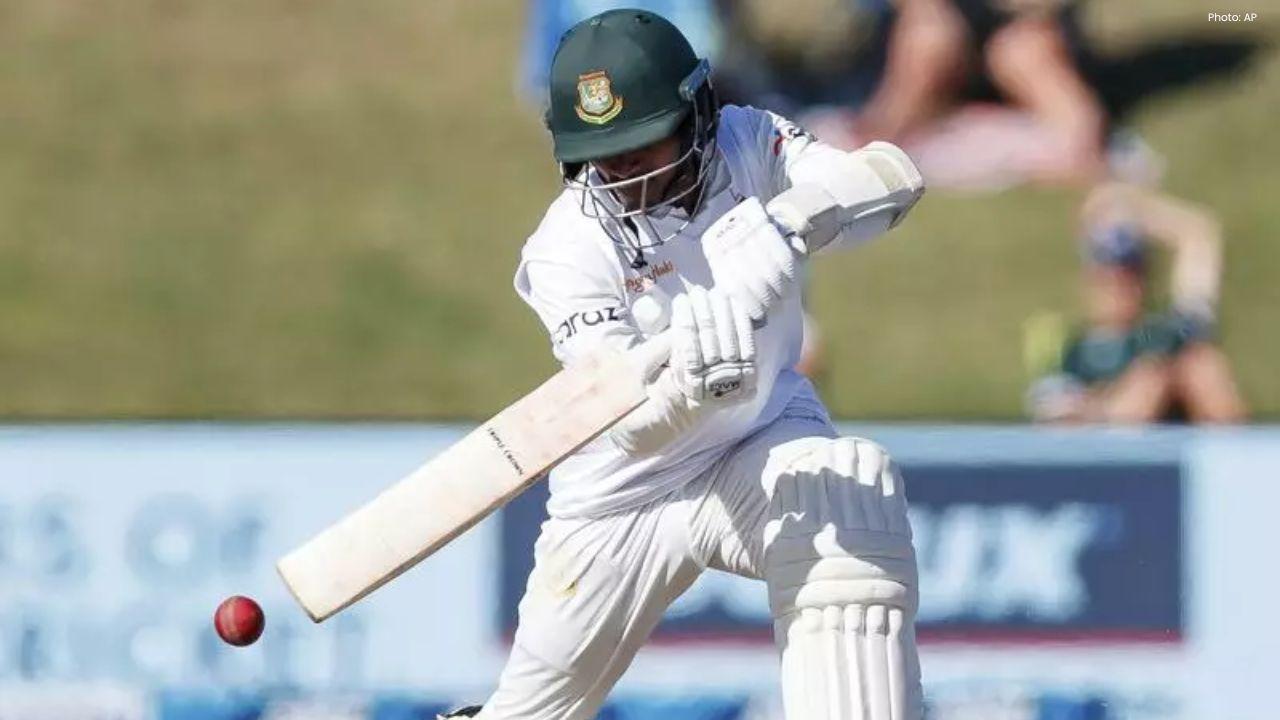
Post by : Saif Nasser
Britain’s finance minister, Rachel Reeves, has said that her next national budget will focus on “fairness and opportunity,” even as growing reports suggest that tax increases may be needed to keep the country’s finances under control. Reeves, who serves as Chancellor of the Exchequer, is set to present her second annual budget on November 26.
In a statement released before her planned speech at Downing Street, Reeves said her main priorities are protecting the National Health Service (NHS), reducing national debt, and improving the cost of living for British families. She said that the new budget will reflect the values of the government and will be aimed at helping ordinary people while ensuring economic stability.
Reeves also addressed rising public discussion about possible tax hikes. She said the decisions she makes in this budget “will shape our economy for years to come,” but did not directly confirm whether income tax or other major taxes will be raised. Her comments came amid strong public debate over how to balance government spending and control debt without putting too much pressure on working families.
According to the Resolution Foundation, a leading British think tank, Reeves may need to raise about £26 billion ($35 billion) in new taxes to meet her budget goals. This could mean breaking a promise made before the last election not to increase income tax. The think tank’s former head, Torsten Bell, now works as a government minister advising Reeves, which makes its forecast especially significant.
A spokesperson for Prime Minister Keir Starmer said that Reeves would explain to the public that the country faces a clear choice — between “investment and hope” or “cuts and division.” This means the government wants to focus on spending money to grow the economy and improve public services, instead of making large spending cuts. However, to do so, they may need more tax income.
Britain’s Office for Budget Responsibility (OBR), the independent body that monitors the economy, is expected to lower its forecast for productivity — a measure of how much the country produces per worker. This change means that future economic growth might be slower than expected. With lower productivity, the government will collect less tax revenue from business and income growth, forcing Reeves to either increase taxes or reduce spending to reach her target of a balanced budget by 2029 or 2030.
The Resolution Foundation said in its report that while slower productivity could hurt the government’s finances, stronger wage growth may help make up for part of the loss. However, the foundation also pointed out that higher borrowing costs and political disagreements inside the ruling Labour Party have made Reeves’ job harder.
Earlier this year, the government failed to win enough support from Labour lawmakers to cut disability benefits, a move that could have reduced public spending. Now, economists expect Reeves to look for other ways to raise funds, such as increasing taxes on cars, capital gains (profits made from selling investments), and non-labour income like dividends and rent.
Reeves has repeatedly said she wants to build a fair economy where everyone contributes according to their ability. But many voters are nervous that tax increases could add more pressure to household budgets already stretched by rising food prices, energy bills, and rent. The cost-of-living crisis has been one of the biggest issues facing the government since it took office.
Analysts believe Reeves is walking a fine line between keeping the public’s trust and maintaining financial discipline. On one hand, she wants to show that Labour can manage the economy responsibly after years of high borrowing. On the other hand, she must avoid upsetting voters who believed Labour’s campaign promises not to raise income tax.
In her upcoming speech, Reeves is expected to explain that her choices will be based on long-term fairness, not short-term politics. She is likely to argue that protecting public services and reducing debt must go hand in hand. Her challenge will be to convince both the markets and the public that her plan can deliver stable growth without deep spending cuts.
Experts say the success of her budget will depend on how she balances new taxes and public investment. If handled well, Reeves could strengthen her reputation as a careful and fair-minded finance minister. But if tax hikes are too harsh, or if inflation rises again, public support could weaken.
As Britain prepares for Reeves’s November 26 budget, attention will be on whether she can keep her promise of fairness while also keeping the country’s finances stable. The choices she makes in the coming weeks will affect not just the economy, but also the political future of the Labour government.










Haryana's Chief Minister Honors Shafali Verma for World Cup Victory
CM Nayab Singh Saini awarded Shafali Verma ₹1.5 crore and a Grade A certificate, celebrating her rem

South Africa Looks to Cement Their Status Against India in Test Series
The Proteas set to showcase their prowess as they face India in a Test series, with the focus on sec

Concerns Grow for England as Mark Wood Faces Injury Ahead of Ashes
Mark Wood's hamstring stiffness raises alarm for England's Ashes hopes, as scans are set to determin

Nelly Korda Poised for Comeback at The Annika Tournament
Nelly Korda returns to The Annika tournament after a five-week break, aiming to shake off her winles

Jokic Shines with 55 Points as Nuggets Defeat Clippers 130-116
Nikola Jokic scored a stunning 55 points, propelling the Nuggets to a 130-116 victory over the Clipp

Mahmudul Hasan Joy's Career-Best 169 Propels Bangladesh Ahead
Mahmudul Hasan Joy's unbeaten 169 guided Bangladesh to 338/1, establishing a 52-run lead over Irelan